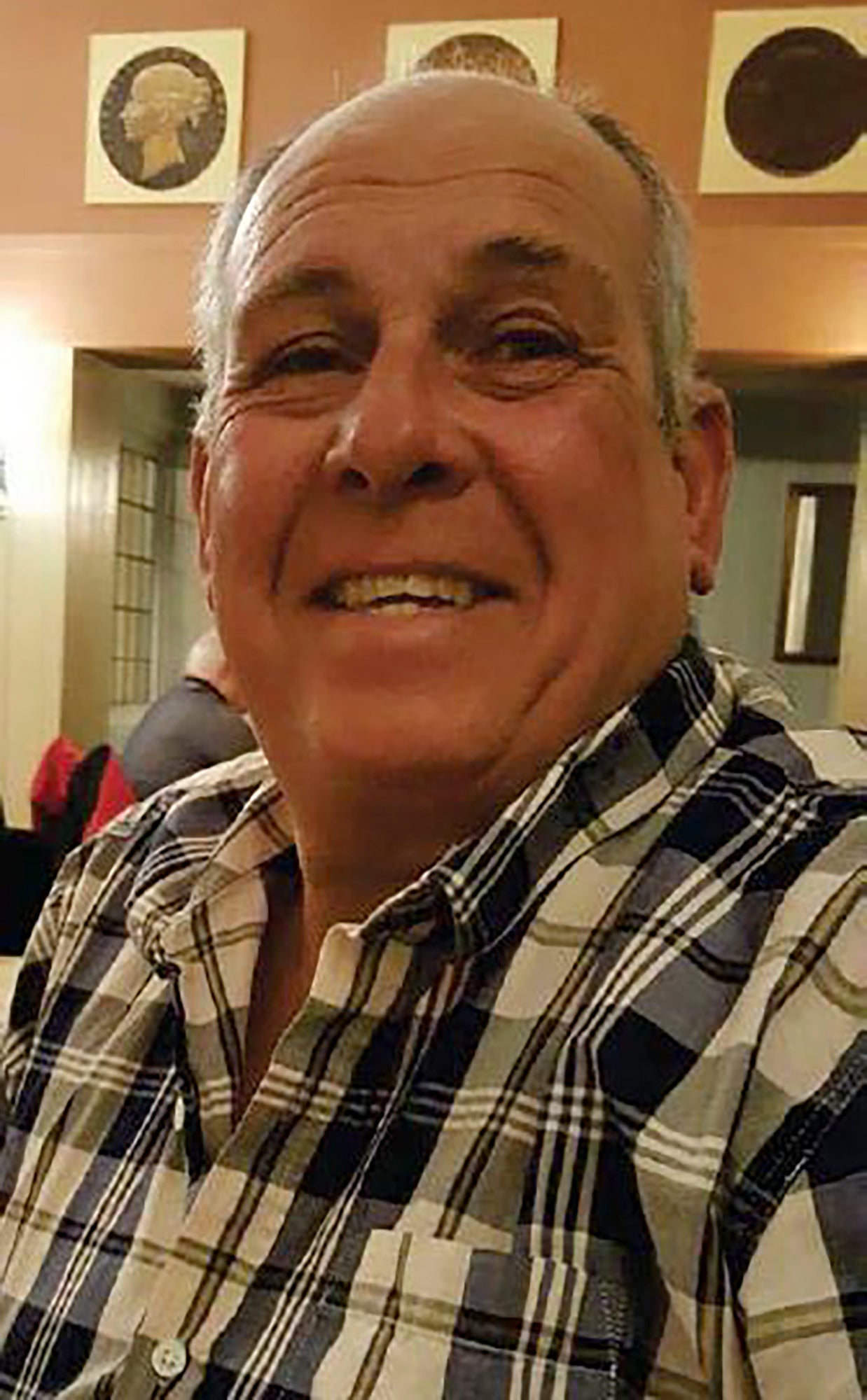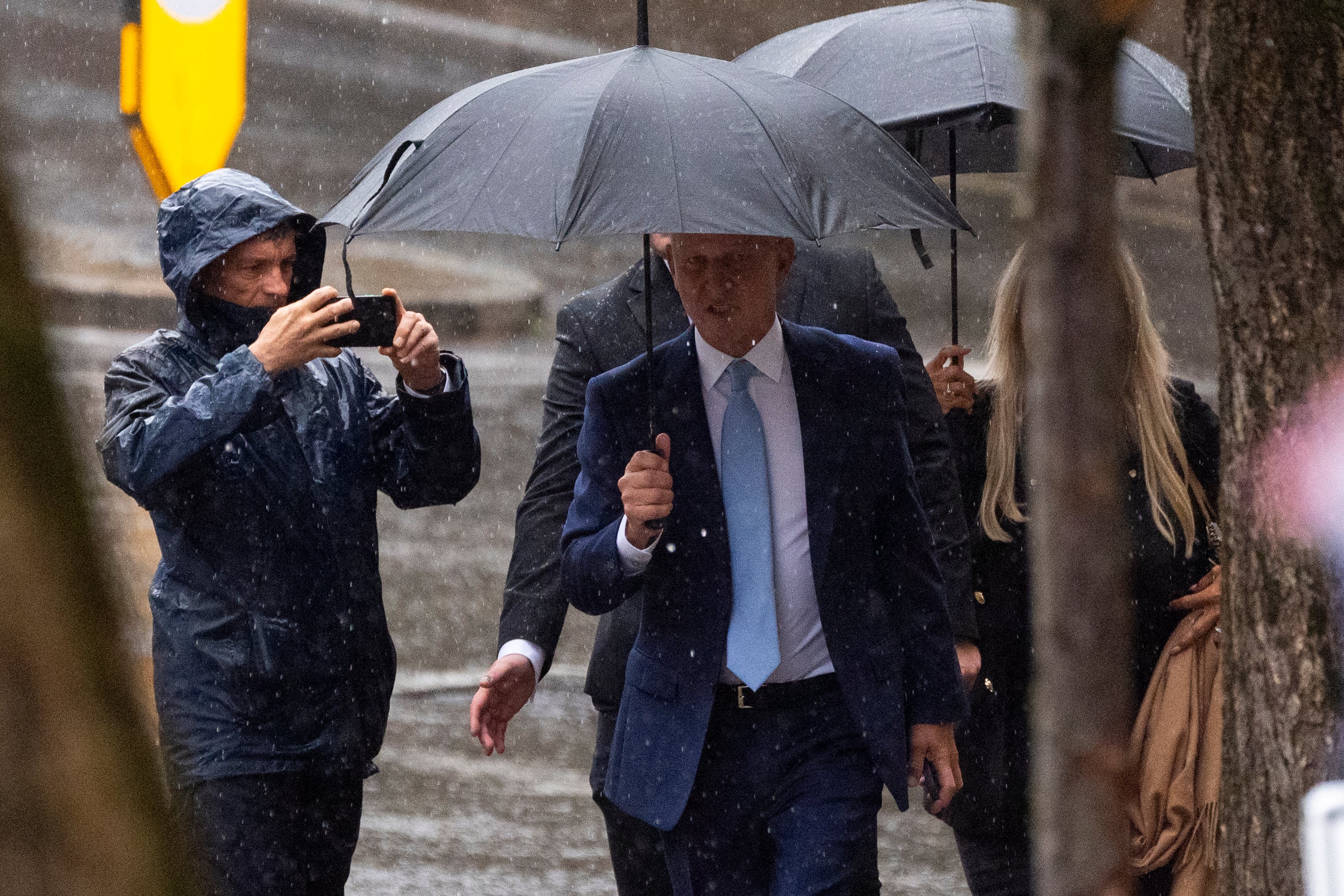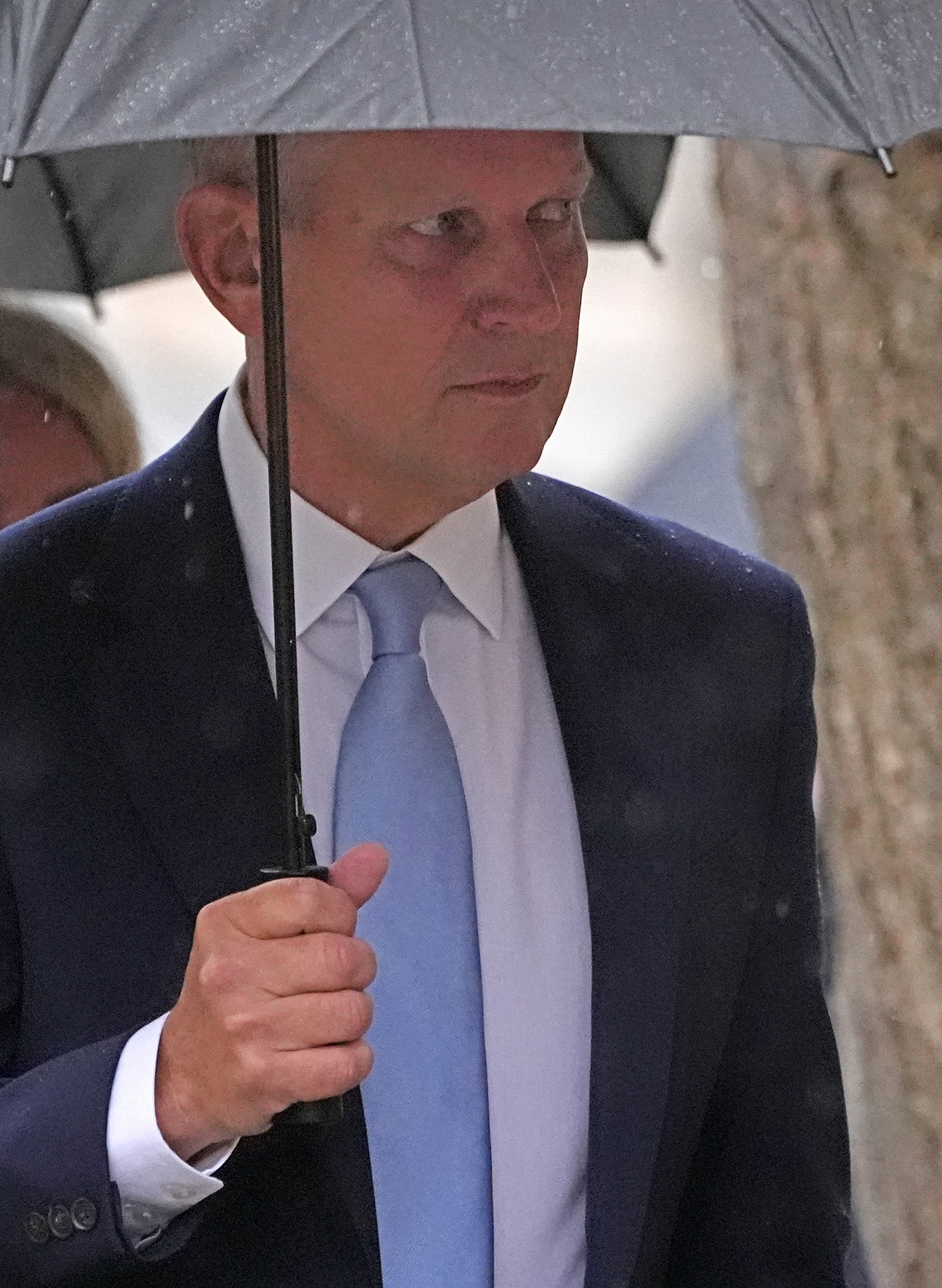Jeremy Kyle has defended his presenting approach at an inquest into the death of a man who is believed to have taken his own life after appearing on his show, saying “he needed to tell the truth”.
Steve Dymond died seven days after coming on the ITV show in May 2019, where he failed a lie detector test over an accusation he cheating on his ex-fiancee Jane Callaghan.
Clips shown to Winchester Cororners’ Court showed Mr Kyle telling the 63-year-old: “Be a man, grow a pair of balls and tell her the goddam truth.”
In dramatic scenes once the test results were revealed, the audience could be heard booing Mr Dymond while his partner runs off the stage in tears towards the backstage area, where the confrontation continues.

A further clip showed Mr Kyle saying: “The studio thought you were telling the truth, I wouldn’t trust you with a chocolate button, mate.”
Throughout the interaction, Mr Dymond could be heard denying the accusations and tearfully claiming: “I swear to God, I am being so straight, I have never been more straight.”
In text messages sent to Ms Callaghan shortly before he died and just days after appearing on the show, Mr Dymond said: “I hope the Jeremy Kyle show is so happy now about what they have done to me.”
The message also added: “I did lie about my past, but I never cheated… never, never, never did I cheat on you.”

Asked by Maya Sikand KC, representing his family, what he made of the assertion the show had been responsible for his death, Mr Kyle said: “I say that I know there was an oil tanker of text messages and Whatsapp messages, I’ve heard people say my approach to Steve Dymond was met with concern, there’s not one text message that complains about my behaviour.
“I am the presenter, I didn’t create the show, I was paid to do a job,” he said.
Speaking of his presenting style, he said it was “direct, but it was empathetic, it was honest”, and said that he had not been briefed by the production team to modify or change his attitude towards Mr Dymond.
And on telling Mr Dymond to “grow a pair” during the show, Mr Kyle told the inquest: “I believed he needed to tell the truth. If he did, there was a chance they could still be together.”
Rachel Spearing, counsel to the inquest, asked Mr Kyle is he believed Mr Dymond was humiliated. “I do not…. I did what I always do and always did, it was what the show… as I understood the show is, sad as it might sound, it was a typical part,” Mr Kyle replied.
The presenter said that he was sent a dossier of information on each guest the evening before filming and was then briefed in his dressing room, and stressed that he had “no involvement” in the selection or screening of potential participants.

Mr Kyle added that he had created a persona for the show but had not been trained in handling emotional guests, and said he believed that each individual story was a “journey” towards conflict resolution.
The hearing was told that after the filming of the show had finished, Mr Dymond had told a researcher: “I wish I was dead”.
He was spoken to by the aftercare team on three occasions in the immediate aftermath of the filming, and was contacted the following day where he promised: “I give you my word I will stay positive.”
Chris Wissun, director of content compliance at ITV at the time, said: “Between the time the studio recording ended at 12.45pm and when he left the studio at 2.30pm, he was continuously talking to members of the production team and to the aftercare nurse in that period.
“I believe the researcher said guests would often make comments like that in the heat of the moment soon after the recording but they would calm themselves and that isn’t how they felt when they left the studio.”
Mr Dymond had a history of depression and had previously taken overdoses on four occasions – in January 1995, twice in December 2002 and in April 2005, the court was told.

Mr Wissun told the inquest that the show had a “standing rule” not to allow guests with current depression to take a lie detector test, given the risk a negative result could worsen their mental health.
In the month before his appearance on the show, Mr Dymond had attended his GP on three occasions and demanded a letter to be allowed onto the show as a “matter of life or death”.
He had then rung the show 40 to 50 times in a “desperate” attempt to secure an appearance, with Mr Kyle telling the inquest he felt they had a “double security blanket” in that they had a GP letter and assistance from the aftercare team.
Graham Stanier, the director of aftercare for the Jeremy Kyle Show between 2005 and 2019 and who was also the show’s on-air counsellor, said in a statement read to the inquest that Mr Dymond was subject to “continuous assessment” following his acceptance to be on the show.
He said this included background checks with his work colleagues and Miss Callaghan and her daughter.
If you are experiencing feelings of distress, or are struggling to cope, you can speak to the Samaritans, in confidence, on 116 123 (UK and ROI), email jo@samaritans.org, or visit the Samaritans website to find details of your nearest branch.
If you are based in the USA, and you or someone you know needs mental health assistance right now, call or text 988, or visit 988lifeline.org to access online chat from the 988 Suicide and Crisis Lifeline. This is a free, confidential crisis hotline that is available to everyone 24 hours a day, seven days a week. If you are in another country, you can go to www.befrienders.org to find a helpline near you.

